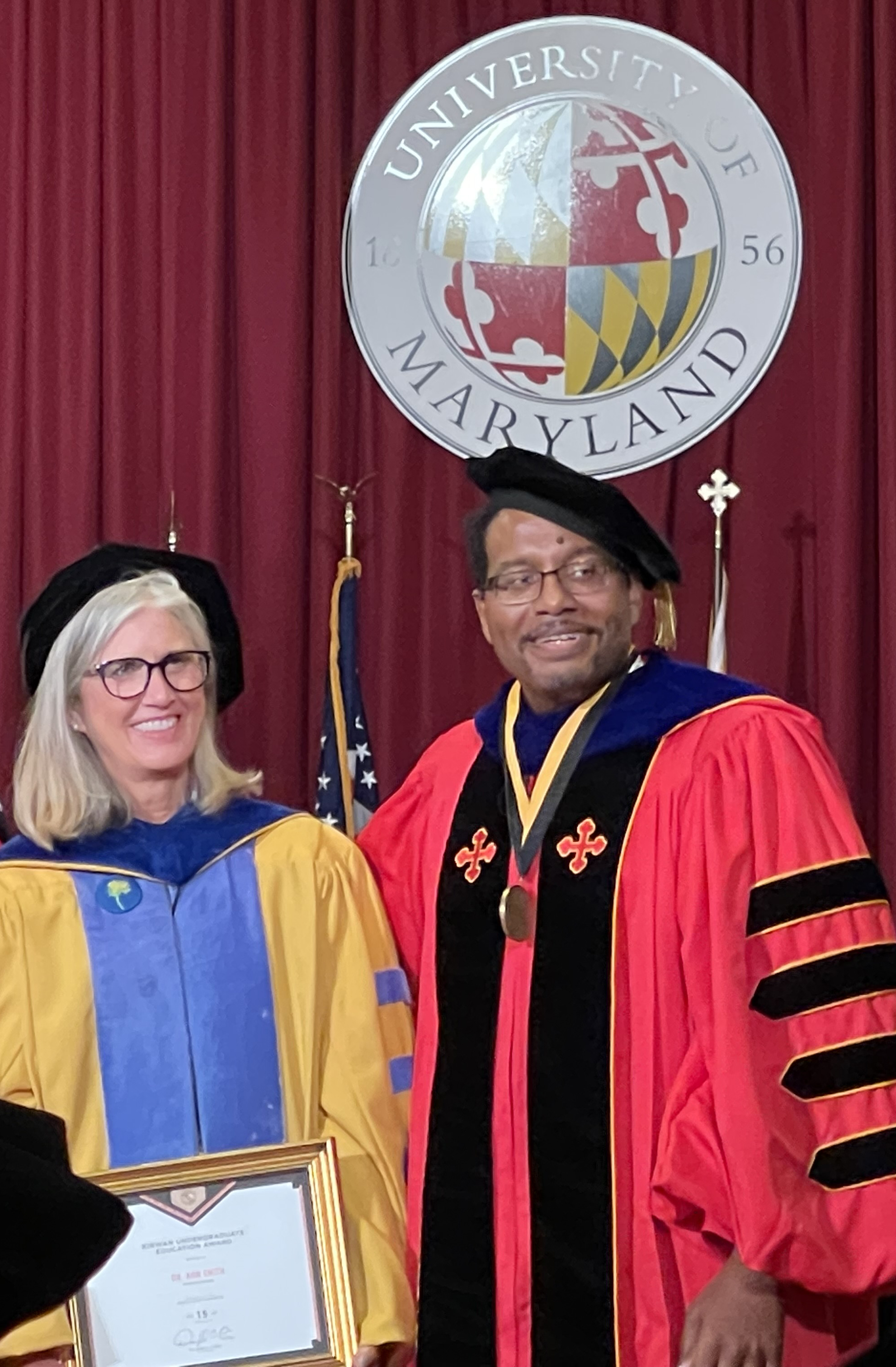ANN SMITH WINS KIRWAN UNDERGRADUATE EDUCATION AWARD
From implementing innovative curriculums to being a sounding board for students, Ann Smith has had a campuswide impact on undergraduate education.
As an assistant dean in the Office of Undergraduate Studies, Smith has promoted authentic and team-based learning experiences, advocated for continuous improvement to general education offerings and measured their effectiveness.
“Ann’s expertise in collaboration, community-building with faculty and students, as well as her commitment to continuous improvement are evident in all her work,” says Lisa J. Kiely, assistant dean in the Office of Undergraduate Studies. “She has created a lasting legacy of student care, innovative curriculum and faculty professional development.”
Smith earned her bachelor’s degree from the College of Wooster and her master’s and doctoral degrees in microbiology from the University of Rochester. She came to UMD in 1987 as an instructor in the Department of Cell Biology and Molecular Genetics, then coordinator and director of its undergraduate programs in 1992 and 1999, respectively. She led a team of faculty who reconceptualized the curriculum with an emphasis on collaborative teaching, case studies and technology.
She brought those principles to Undergraduate Studies, beginning as interim assistant dean in 2006. Smith fostered the development of the Scholarship in Practice category of general education and was the driving force behind the Carillon Communities living-learning program, a collaborative endeavor with the Academy of Innovation and Entrepreneurship, and the Department of Resident Life, where first year students work with faculty to ask “Big Questions” that matter to our world, and learn to use teamwork and creative problem-solving approaches.
Along with William Cohen, associate provost and dean for undergraduate studies, she led the Provost’s Commission on Learning Outcomes Assessment and, as ombudsperson for undergraduates, established a new website with course-related policies and resources to help students and faculty alike.
“She is a steadfast advocate for students who also understands the pressures on faculty and the complexities of a large, decentralized institution,” says Cohen. “She was unfailingly thoughtful, diligent and compassionate in her work, helping innumerable students find a path to a solution by navigating the campus.”

“She has created a lasting legacy of student care, innovative curriculum and faculty professional development.”
